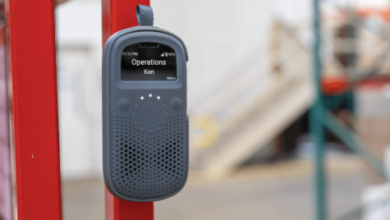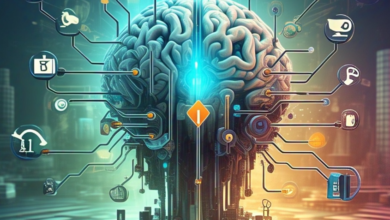How Central Reservations Systems Are Evolving with AI and Machine Learning

The travel and hospitality industry has come a long way in streamlining how bookings are handled. In today’s fast-paced world, central reservations systems (CRS) play a crucial role in ensuring that everything—from room availability to pricing and customer preferences—is managed efficiently. But as customer expectations evolve and businesses grow more competitive, traditional methods no longer cut it. Enter AI and machine learning—technologies that are changing the way CRS operates. Let’s explore how these innovations are making central reservations systems smarter, more intuitive, and, ultimately, better at delivering what both businesses and travelers need.
Making Reservations Simpler with AI
If you’ve ever made a hotel reservation online or called a booking agent, you might not have noticed the incredible complexity behind the scenes. Previously, central reservations systems were all about manually updating inventories and following basic algorithms for pricing. Now, AI is shaking things up by simplifying many of these behind-the-scenes processes.
AI technology allows CRS to handle more data than ever before, making operations much smoother. For example, imagine trying to manually calculate the best price for a hotel room during a busy holiday season. With AI, this happens automatically. AI can predict when rooms will fill up, adjust prices in real-time, and help businesses optimize their bookings without lifting a finger. This saves time for hotels and lets customers book at competitive prices, often tailored just for them.
AI is also helping by answering customer questions through chatbots and virtual assistants. These smart systems are available 24/7, answering common questions, helping customers book rooms, and even making recommendations based on previous bookings. All of this happens without needing a human agent, yet the experience feels smooth and personalized.
How Machine Learning is Improving Predictions
While AI handles a lot of real-time tasks, machine learning takes things to another level by learning from every interaction. This is where CRS systems really start to shine. The more data machine learning processes, the better it becomes at spotting patterns and trends.
For example, have you ever wondered how a travel site seems to know when to offer you a room at just the right time, or how they predict that certain dates will be busier than others? This is where machine learning steps in. By looking at past booking behavior, cancellations, and even external factors like weather or local events, machine learning algorithms can predict what’s likely to happen in the future. This way, businesses can avoid overbooking or underselling rooms and ensure they’re making the most of their inventory.
Dynamic pricing is another area where machine learning excels. Instead of sticking to a fixed price or making occasional manual adjustments, machine learning allows the system to automatically adjust prices based on real-time demand, competitor pricing, or even customer loyalty. This means that customers often get a price that feels just right, while businesses maximize their revenue without much guesswork.
Personalization: A Game Changer for Customers
One of the biggest changes AI and machine learning are bringing to central reservations systems is personalization. Let’s face it—travelers today expect more than just a good deal. They want a personalized experience that makes them feel like the hotel or travel company truly understands them.
AI-powered CRS can offer just that. By analyzing previous stays, customer preferences, and even factors like room amenities or views, the system can make tailored recommendations. If you’ve stayed in a room with a pool view before, the system might suggest a similar option next time. If you prefer early check-ins or need a room with a workspace, those details can be remembered and offered automatically on your next visit.
This kind of customization doesn’t just enhance the customer’s experience—it builds loyalty. When customers feel that a hotel or booking system gets them, they’re more likely to return. Plus, it cuts down on the hassle of sorting through hundreds of options when booking, making the process faster and more enjoyable.
AI Insights for Smarter Business Decisions
For businesses, it’s not just about improving the customer’s experience. AI also brings a wealth of insights that help make better decisions. Every time a customer books, cancels or leaves a review, that data becomes part of a larger story that AI helps to tell. Over time, this story becomes clearer and provides valuable insights into what’s working and what isn’t.
For instance, hotels can use AI to analyze which types of rooms are most popular, when peak booking times occur, and even what types of promotions are most effective. Rather than relying on gut feelings or outdated methods, AI helps businesses make informed choices backed by real data. They can adjust marketing efforts, pricing strategies, or even room layouts based on what the data reveals.
This level of insight also allows businesses to stay competitive. By keeping an eye on competitor pricing and performance, a CRS can help hotels adjust their offerings to remain attractive in the market. This gives businesses a leg up, ensuring they aren’t losing customers to the competition.
Looking Ahead: What the Future Holds for CRS
As AI and machine learning continue to evolve, the future of central reservations systems is looking brighter. We can expect these technologies to become even more sophisticated, further improving the efficiency and customer-centric approach of CRS.
One exciting possibility is the integration of AI with emerging technologies like the Internet of Things (IoT). Imagine a system that can manage room settings, such as temperature or lighting, based on guest preferences even before they check in. Or think about AI that can optimize the use of resources, like energy and water, making operations more sustainable and cost-effective.
Another area of potential growth is in data security and transparency, especially with the use of blockchain technology. This could provide more secure booking systems, ensuring customers have peace of mind when entering their personal information or making payments online.
Ultimately, AI and machine learning are moving from being just “nice to have” tools to becoming essential parts of how central reservations systems operate. As these technologies continue to evolve, businesses that embrace them will be better equipped to offer personalized, seamless, and competitive services that meet the needs of modern travellers.
Conclusion
In today’s travel landscape, the integration of AI and machine learning into central reservations systems is no longer a futuristic idea—it’s happening now. These technologies are transforming how reservations are handled, from optimizing pricing and predicting customer behaviour to offering personalized experiences that keep customers coming back.
As central reservations systems continue to evolve with these advancements, both businesses and customers stand to benefit. Whether it’s making smarter decisions based on data or delivering a more seamless booking experience, AI and machine learning are driving the future of travel, one booking at a time.



